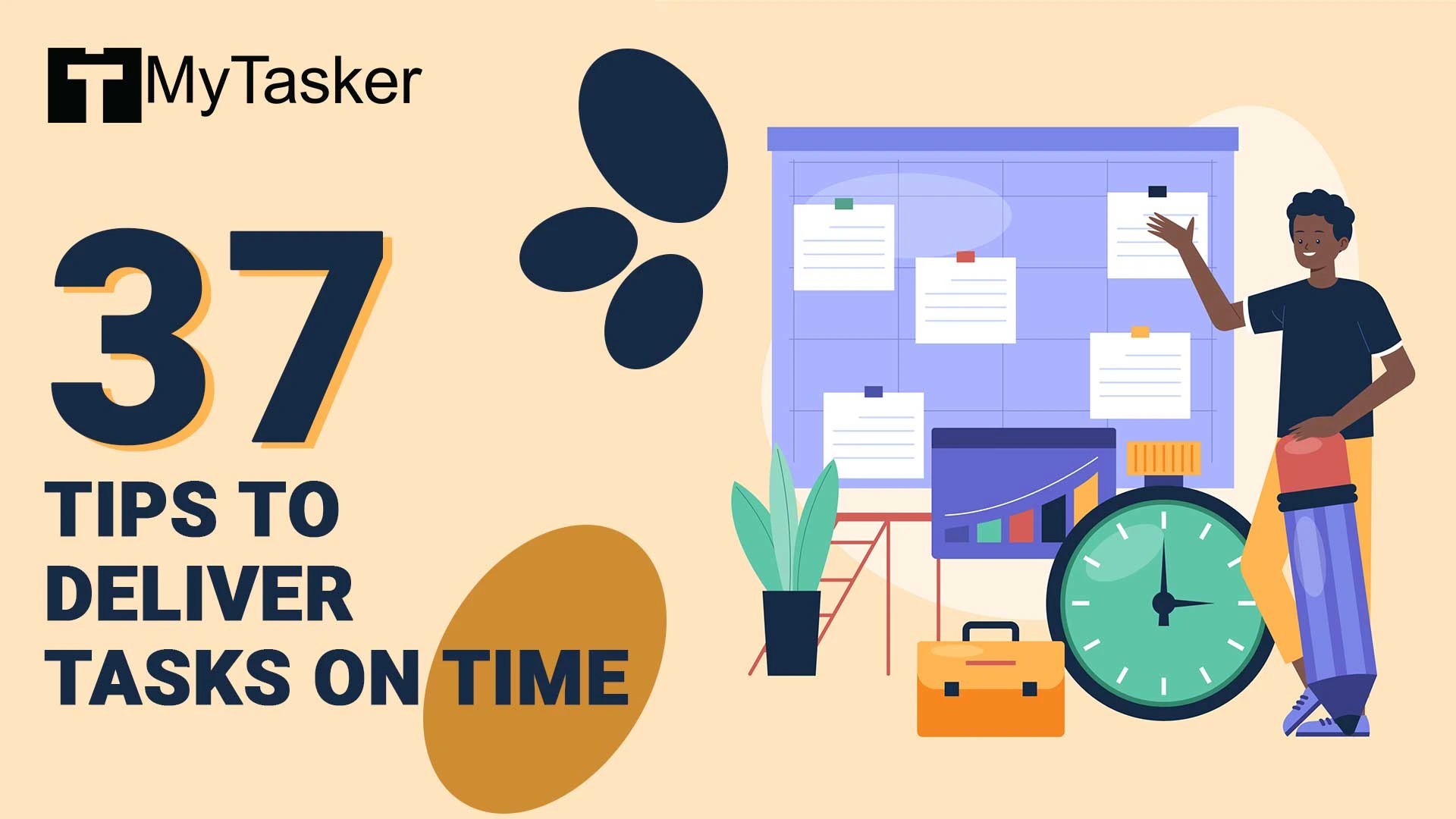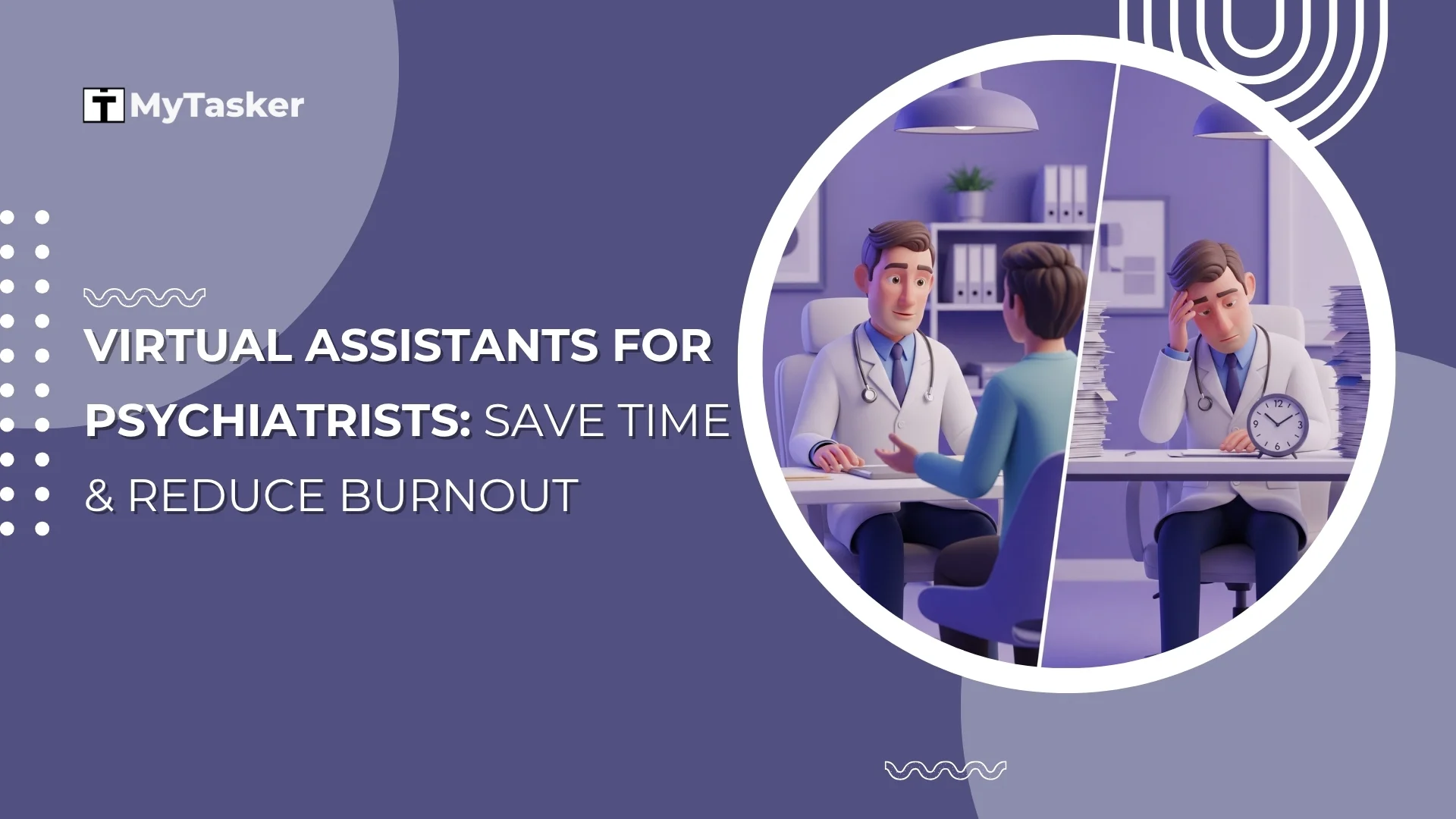Let us start with a simple question. What is the vital mantra for success - be it in your professional arena or your personal life? The answer is easy - staying on schedule regarding your tasks and timely delivery of results. At this point, you may feel that this is easier said than done. This is because, sometimes, deadlines may appear to be enormous and unattainable. However, they can become much simpler and manageable if you follow some thumb rules. In this article, we will go through some simple strategies to keep you focused and manage your time efficiently.
- Don’t Accept or Agree to Any Impractical or Impossible Deadline.
- Be positive about what is expected from you.
- Get all the required data beforehand.
- Divide Large Tasks.
- Prioritize Tasks according to Urgency and Importance.
- Use Calendar Apps to Schedule tasks and set reminders.
- Avoid diversions or disturbances.
- Maintain regular communications with your clients.
- Keep buffer time for unexpected hurdles.
- Address mistakes and learn from them.
- Pay attention to your well-being and your team members.
- Recognize and reward accomplishments.
- Avoid disturbances and distractions.
- Focus on urgent and important tasks.
- Avoid multitasking.
- Assign tasks to the best-fit team members.
- Plan the week ahead.
- Take proper rest and allow regular breaks.
- Keep your workspace organized.
- Use time-tracking apps.
- Avoid Procrastination.
- Set priorities and goals for daily tasks.
- Break down large tasks into smaller subtasks.
- Identify peak productivity times.
- Group similar tasks together.
- Automate repetitive tasks.
- Set specific, achievable goals.
- Decline additional responsibilities politely.
- Focus on completing tasks over perfection.
- Create a prioritized To-Do List.
- Hold regular team meetings.
- Ask for guidance and feedback.
- Impose deadlines even when not necessary.
- Identify and avoid time-wasting activities.
- Group similar tasks together.
- Delegate tasks effectively.
- Outsource tasks if needed.
Whether your goal is to enhance your work output or to avoid the struggle of tying up all the loose ends of your work at the eleventh hour, these tips will come in handy to keep you ahead of others.
For your convenience, I have also shared an infographic below that you can download and save to help you keep these key points in mind.
1. Don’t Accept or Agree to Any Impractical or Impossible Deadline.
Evaluate your available Resources and Restrictions: Before accepting any deadline, carefully analyze the tasks that you currently have in hand and ask yourself if you would be able to complete the new task within the proposed deadline. Don’t accept new responsibilities only on the basis of financial gains.
If the timeframe seems to be irrational or unattainable, always bargain for a more practicable deadline.
Be specific while communicating about the estimated completion time of the project and mention clearly what results can be achieved within the proposed time frame.
Tip: Always make sure that all the team members selected to work on the project will be available during the time frame. Mustering the necessary manpower is an absolute MUST to complete the project within the deadline.
2. Be positive about what is expected from you.
First and foremost, resolve any doubts that you may have and ask for confirmation about the project requirements.
Take down notes: Write down all the necessary information, such as minutes of discussions, instructions, and any modifications to the project schedule.
Paraphrase your understanding of the project requirements and ask for confirmation from your client in order to be on the same page.
3. Get all the required data beforehand.
Ensure you have all the necessary credentials and access information to websites and tools before embarking on the execution of the project.
Ask your client to share any necessary documents that can be used as a reference to complete the project.
Contact Details: Compile a list of contact details of all the persons who may need to be consulted during the execution of the project.
4. Divide Large Tasks.
Break down large tasks into smaller subtasks for proper work distribution among your team members.
Set Timelines for the smaller tasks to monitor and track progress.
Motivate your team members by celebrating the completion of the individual smaller tasks.
5. Prioritize Tasks according to Urgency and Importance:
Identify and Focus on tasks that are important and need to be completed on an Urgent basis.
Analyze the smaller tasks to check if any of them are not necessary for the successful completion of the Project. Remove these tasks from your to-do list to save time and manpower.
6. Use Calendar Apps to Schedule tasks and set reminders.
Use Calendar Apps to Schedule tasks as well as set reminders for deadlines. Use Project Management Software to monitor the progress of the smaller components of tasks, complete tasks within deadlines, and ensure proper coordination within your team.
7. Avoid diversions or disturbances.
In order to avoid any diversions or disturbances, apply necessary measures like turning off Notifications and/or keeping phones mute.
Communicate with your team members or family members regarding time budgets/estimates and deadlines. Let them know about the uninterrupted time that you need to complete the project.
In order to improve productivity and maintain focus, methods like the Pomodoro technique are used to track working times as well as break times.
8. Maintain regular communications with your clients.
Maintain regular communications with your clients in order to share updates on your progress as well as challenges, if any.
At any stage, if you require any guidance or clarification, always ask the concerned persons.
In case any changes are being implemented, communicate with the client regarding the expected outcomes in a realistic manner.
9. Keep buffer time for unexpected hurdles.
While working on a project, you may have to face some unexpected hurdles. Hence, while setting the deadline, keep some extra time or buffer time to handle these situations. This will also help you avoid rushing to work to meet the deadline.
10. Address mistakes and learn from them.
We have all heard of the proverb “To err is human.” If you find that anything is going wrong, do not get disheartened. Rather, have a discussion with your team members to figure out the mistake and how it can be remedied. As we are all prone to commit errors, use these incidents as your learning curve and make sure to avoid these errors in the future.
11. Pay attention to your well-being and your team members.
Always pay attention to the well-being of yourself as well as your team members. As you are working on a project bound by a strict deadline, it is very natural to get stressed. Take proper rest and allow regular breaks to remain healthy and refreshed, both physically and mentally. Also, encourage the practice of regular workouts and meditation among your team.
12. Recognize and reward accomplishments.
To motivate your team members, recognize and reward the accomplishment of any milestone, big or small. Share the success with all the team members to maintain a positive vibe within the team.
13. Avoid disturbances and distractions.
To avoid any disturbances or distractions, implement necessary steps like turning off Notifications and blocking such websites or apps that may cause diversions during working time.
14. Focus on urgent and important tasks.
Identify and Focus on tasks that are important and need to be completed on an Urgent basis.
Analyze the smaller tasks to check if any of them are not necessary for the successful completion of the Project. Remove these tasks from your to-do list to save time and manpower.
15. Avoid multitasking.
Please remember working on multiple tasks at the same time may prove to be detrimental to the overall progress of the project at times.
Always make sure to complete one task before working on the next. Schedule specific time frames for individual tasks.
16. Assign tasks to the best-fit team members.
Assign tasks to the best-fit team member depending on the specific skill set required to complete the task efficiently.
Provide clear instructions and necessary resources and set specific deadlines for completing the task.
17. Plan the week ahead.
At the beginning of a week, chalk out a rough plan of the tasks and milestones to be accomplished within that week.
Calculate the time each task will take and allocate accordingly.
Make necessary adjustments according to progress.
18. Take proper rest and allow regular breaks.
Take proper rest and allow regular breaks to remain healthy and refreshed, both physically and mentally. Also, encourage the practice of regular workouts and meditation among your team.
19. Keep your workspace organized.
Keep your workspace organized and store your digital files methodically to access them easily when required.
Use apps, softwares, and platforms at your disposal to manage the project.
20. Use time-tracking apps.
Use time tracking apps to efficiently manage the time and schedule for tasks.
21. Avoid Procrastination.
Avoid Procrastination by splitting bigger tasks into smaller sections to make them more achievable.
22. Set priorities and goals for daily tasks.
Set priorities and Goals for daily tasks. Always remember that accomplishing each small task brings you one step closer to achieving the main goal.
23. Break down large tasks into smaller subtasks.
Break down large tasks into smaller subtasks for proper work distribution among your team members.
Set Timelines for the smaller tasks to monitor and track progress.
24. Identify peak productivity times.
Identify the time when your team can give the maximum productivity. Schedule your working hours accordingly.
25. Group similar tasks together.
Create groups of Tasks that are similar. This will help to reduce frequent switching between different types of tasks.
26. Automate repetitive tasks.
Identify the tasks that are performed frequently or repeatedly. Use software to automate these tasks to save time and manpower.
27. Set specific, achievable goals.
While setting Goals, make sure that they are specific, achievable, and pragmatic. If required, split bigger goals into smaller steps with specific time frames.
Make necessary adjustments based on the overall progress.
28. Decline additional responsibilities politely.
If any other responsibility comes your way that may hinder your present work, decline politely or suggest any alternative solution.
29. Focus on completing tasks over perfection.
Always remember achieving excellence in the quality of work is good. However, it is always better to complete a task rather than spend time to make the work perfect and leave the task unfinished before the deadline ends.
30. Create a prioritized To-Do List.
Chalk out a specific To-Do List and prioritize tasks according to importance and urgency.
31. Hold regular team meetings.
Regularly hold meetings and discussions with your team members to review your progress and make adjustments to your plans as deemed necessary. Find out how workflow can be improved, and productivity can be increased.
32. Ask for guidance and feedback.
Always ask for guidance from your colleagues and superiors regarding the quality and progress of your work. Accept suggestions and feedback on a positive note for your growth and development. Review the work and approach of others who have worked on similar tasks previously.
33. Impose deadlines even when not necessary.
Impose deadlines to complete tasks on an urgent basis, even if it is not entirely necessary. Completing smaller tasks before schedule will save time in the long run.
34. Identify and avoid time-wasting activities.
Identify and avoid activities that can waste your time unnecessarily.
Do not participate in activities where your presence is not essential.
35. Group similar tasks together.
Segregate similar types of tasks in groups and perform them at the same time to avoid switching between different types of tasks frequently.
36. Delegate tasks effectively.
Delegate tasks to the best-fit team member depending on the required skill set.
Provide clear instructions and necessary resources and set specific deadlines for completing the task.
37. Outsource tasks if needed.
If required, you can outsource some of your tasks to professionals who have the requisite skill sets.
Hire Freelancers or Virtual Assistants for specific skill-oriented tasks.
Analyze the Cost of hiring an external agency versus the Benefit of saving time and better quality of work before deciding upon outsourcing your work.
Frequently Asked Questions
1. How can tasks be categorized efficiently according to priority?
Analyze the tasks in your pipeline and figure out which tasks are more important than others and need to be performed on an Urgent basis. In this regard, you can refer to the Eisenhower Matrix where tasks can be sorted into 4 categories:
- Urgent and Important.
- Important but not Urgent.
- Urgent but not Important.
- Neither Urgent Nor Important.
In order to prioritize tasks efficiently, always focus on the tasks from the first category which are marked as Urgent and Important.
2. How can procrastination at work be avoided?
A common issue that project managers often have to face is unnecessary delaying of work by a team member. Usually this happens when a large chunk of work is assigned to a person and this in turn triggers a psychological blockage for that individual which stalls the progress of the work.
Here are some useful tips to avoid this dithering and bring out the peak performance of team members:
- Split bigger tasks into smaller sections to make them more achievable.
- Identify the time when your team can give the maximum productivity. Schedule your working hours accordingly.
- Utilize an effective time management method coined as Pomodoro Technique where an individual works for short intervals and takes breaks in between. This rejuvenates the person both mentally and physically and this improves the performance and productivity.
- To avoid any disturbances or distractions, implement necessary steps like turning off Notifications and blocking such websites or apps that may cause diversions during working time.
3. How can time management skills be improved?
A vital factor on which the success of a time-bound project depends is efficient time management.
You can follow some simple strategies for effective time management:
- Use Calendar Apps to Schedule tasks as well as set reminders for deadlines.
- Use Project Management Software to monitor the progress of the smaller components of tasks, complete tasks within deadlines, and ensure proper coordination within your team.
- Maintain regular communications with your clients and team members in order to share updates on your progress as well as challenges, if any.
- While working on a project, you may have to face some unexpected hurdles. Hence, while setting the deadline, take into account some extra time or buffer time to handle these situations. This will also help you avoid rushing to work to meet the deadline.
- As you are working on a project bound by a strict deadline, it is very natural to get stressed. Take proper rest and allow regular breaks to remain healthy and refreshed, both physically and mentally. Also, encourage the practice of regular workouts and meditation among your team.
4. How to delegate tasks efficiently?
Another important aspect of successful completion of a project is effective task delegation. Following are some tips of efficient task delegation:
- Assign tasks to the best-fit team member depending on the specific skill set required to complete the task efficiently.
- Provide clear instructions and necessary resources and set specific deadlines for completing the task.
- Regularly hold meetings and discussions with your team members to review your progress and make adjustments to your plans as deemed necessary. Find out how workflow can be improved, and productivity can be increased.
- To motivate your team members, recognize and reward the accomplishment of any milestone, big or small. Share the success with all the team members to maintain a positive vibe within the team.
5. How to stay focused in work and to avoid any diversions or disturbances?
- In order to avoid any diversions or disturbances, apply necessary measures like turning off Notifications and/or keeping phones mute.
- Communicate with your team members or family members regarding time budgets/estimates and deadlines. Let them know about the uninterrupted time that you need to complete the project.
- In order to improve productivity and maintain focus, methods like the Pomodoro technique are used to track working times as well as break times.
- Keep your workspace organized and store your digital files methodically to access them easily when required.
Always remember, the set of skills for efficient project management can be honed and nurtured only through practice. In your professional environment, experiment with different approaches as well as learn from strategies used by your fellow workers.
By following the points mentioned above, you can improve your productivity and ability to successfully complete time-bound projects and deliver results within specified deadlines.















